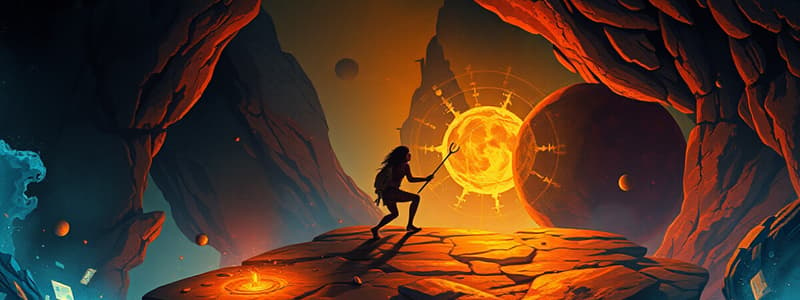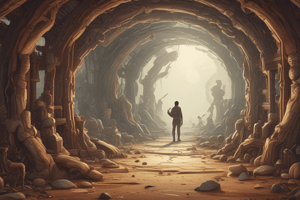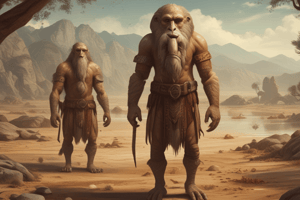Podcast
Questions and Answers
Early humans were curious about their ______.
Early humans were curious about their ______.
nature
As science developed, ancient humans discovered and invented ______.
As science developed, ancient humans discovered and invented ______.
tools
With new scientific instruments and techniques, ______ excavation has provided us with data.
With new scientific instruments and techniques, ______ excavation has provided us with data.
archeology
People developed science and technology out of their search for ______.
People developed science and technology out of their search for ______.
Humans analyzed and organized information, leading to the understanding of ______.
Humans analyzed and organized information, leading to the understanding of ______.
Flashcards are hidden until you start studying
Study Notes
Understanding Early Human Curiosity
- Early humans exhibited curiosity about their environment and nature.
- They observed and documented patterns and cycles in their surroundings.
- This curiosity led to critical analysis and organization of information, forming the foundation of science.
Development of Tools and Methods
- As science progressed, ancient humans created and refined tools and techniques.
- The invention of new scientific instruments enhanced opportunities for discoveries.
- Archaeological excavations, supported by these advancements, yielded valuable data and evidence regarding early human life.
Science and Technology Evolution
- The quest for survival, including food acquisition, drove the development of science and technology.
- Practical needs and inherent curiosity fueled advancements in knowledge and tools.
- The intersection of survival needs and exploration led to significant evolutionary changes in human understanding.
Studying That Suits You
Use AI to generate personalized quizzes and flashcards to suit your learning preferences.




